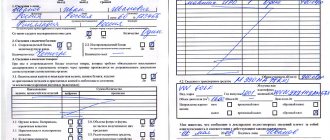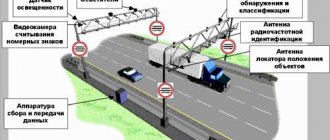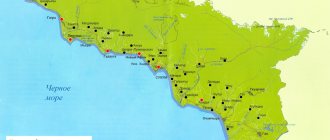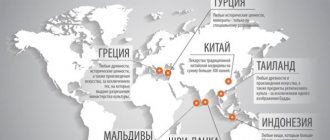The Czech Republic is a country that is a member of the European Union, therefore its territory is subject to EU customs legislation. In particular, the list of what can and cannot be imported into the Czech Republic is determined by EU Directive No. 2007/74 of December 20, 2007, regulating the rules for duty-free import of goods into Europe, EU Directive No. 2002/995 of December 9, 2002, restricting the import of food products of animal origin, and other European regulations. Moreover, the law provides for different standards for different products.
Is it possible to import meat to Russia?
Answer: There are no meat import standards. There is a general norm for the import of goods of 65,000 rubles or 35 kg. However, fresh meat can be imported only with veterinary and sanitary-epidemiological certificates. Thus, the customs officers are absolutely right in not allowing you this gift.
Interesting materials:
How to remove wine stains? How to wash a dyed colored item? How to wash faded white clothes? How to wash towels at home? How to wash sweaty armpits? How to wash a handle from a white T-shirt? How to wash handle from white jeans? How to remove rust from white linen? How to remove a ballpoint pen from a white blouse? How to wash heavily soiled towels?
Currency restrictions
The first thing a tourist from Russia should pay attention to is the import of currency. In accordance with EU Directive No. 1889/2005 of October 26, 2005, anyone can freely import into the Czech Republic up to 10 thousand euros in cash or an equivalent amount of any other currency, for example, up to 760 thousand rubles. By the way, this applies not only to cash, but also to securities, traveler’s or bank checks, etc.
If the amount of funds is more than 10 thousand euros, this does not mean that the person will not be able to import them - he is only required to declare them at customs.
In this case you will have to indicate:
- declarant data;
- information about the owner and recipient of funds;
- the origin and intended use of this money;
- route and method of transporting funds to the territory of the Czech Republic.
The foreign exchange threshold is the same for both import by plane and by land. If customs officers discover undeclared funds, they have the right to seize and even seize them while checking the use of these funds in illegal transactions. The citizen himself who imports undeclared currency into the country may be brought to administrative responsibility.
During the journey
Hotel accommodation
When checking into a hotel, you must present your passport and voucher to the receptionist.
Check-in time is usually no earlier than 14:00 when rooms are ready.
Luggage can be left in the hotel storage room before checking into your room.
If you have any problems with your hotel accommodation, please contact your resort representative or PAC24.
Note
In the Czech Republic, smoking is allowed only in designated areas, including hotels.
Tourist tax/tourist (resort) tax
In some city hotels and resorts in the Czech Republic, tourists are charged a tourist tax/resort fee. Vacationers must make minor payments to the state for every day spent at the hotel. On average, this is from 0.6 to 0.9 € per person per day.
Hotel services
Before using any hotel service, find out how much it costs. If a conflict situation arises between the hotel administration and a guest, its representatives have the right to act in accordance with Czech rules and laws, for example, call the police, which will lead to rather unpleasant consequences.
Before handing over items to the laundry, find out the order completion time (usually at least 24 hours).
Nutrition
Hotels in the Czech Republic offer tourists different types of meals: breakfast, half board or full board.
The Czech Republic has an excellently developed restaurant business - there is a wide choice of catering establishments. The most expensive of them are under the guise of Restaurant (meat dishes cost 200–300 CZK). Lower prices in Restaurace (meat dish - about 100 CZK). The most affordable is in pubs, where they serve not only beer, but also delicious fried sausages at very reasonable prices. It makes sense for beer connoisseurs to try it in restaurants near the breweries “Pilsen”, “Budejovice”, “Krusovice”, “Velkopopovice”, “Prague” - according to the majority, their beer is the most delicious.
Departure from the hotel/apartment
When leaving the hotel, checkout time is usually set between 09:00 and 12:00.
Do not forget to pay bills in advance for using additional paid services at the hotel: telephone calls, mini-bar in the room, laundry, dry cleaning, etc.
When vacating the apartment, you need to wash the dishes, take out the trash, remove and leave bed linen on the bed. If final cleaning and resort fees are not included in your stay, payment will be required the day before departure.
Money and shopping
The main monetary unit is the Czech crown (CZK), equal to 100 hellers. In circulation there are banknotes in denominations of 20, 50, 100, 200, 500, 2000, 5000 kroner and coins in denominations of 10, 20, 50 hellers and 1, 2, 5 and 10 kroner. 1 US dollar is equal to approximately 25.6 crowns (as of February 2021), the exchange rate fluctuates.
Cash can be changed at the airport (especially if your flight arrives on a weekend when banks are closed), at train stations in large cities, at special exchange machines and at banks.
Banks are usually open from 09:00 to 12:00 and from 13:00 to 16:00. Exchange offices are open until 18:00–20:00. When exchanging currency, pay attention not only to the exchange rate, but also to the interest charged. The exchange commission ranges from 2-10%, so it is important to clarify this information before making a transaction. In Prague, traditionally the most favorable rate is offered at exchange offices on the street. Panskaya.
When exchanging currency at central exchange points, you will need a passport, which will be used to issue a receipt necessary for exchanging currency back when leaving the country. Credit cards are widely accepted as payment; the most common are Visa, Mastercard, Diners Club, Eurocard. There are many ATMs in cities where you can get Czech crowns using credit cards at any time. Travel checks can be cashed at major tourist centers and at most banks.
The shops
Open from 09:00 to 12:00 and from 15:00 to 19:00. On Saturday – until 12:00 (tourist centers close later). On Sundays and holidays, shops are open only in tourist centers.
Registration of TAX-FREE
TAX-FREE registration exists in most stores in the Czech Republic (there must be a corresponding sign at the entrance).
Tax refunds are available starting from €154.94.
Please keep in mind that TAX-FREE refunds are not available for items purchased at outlets.
To apply for TAX-FREE, receive a special invoice from the store (fattura or Tax Free Shopping Check) indicating your passport details, your home address, and the amount to be reimbursed. The invoice must be signed by you. Then, upon arrival at the airport, check in for your flight and receive your boarding pass, but do not check your luggage. Contact the special TAX-FREE customs office, present the purchased goods for inspection and receive the necessary stamp. Only then return to the front desk and check in your luggage. Next, receive cash or credit to your card at the Cash refund point of the corresponding brand at the airport. If there is no Cash refund point at the airport, or for some reason you cannot use its services, send the forms by mail to the brand company, entering your credit card number in them.
Visiting temples
The majority of believers in the Czech Republic belong to the Roman Catholic Church.
You can find out visiting hours for the cathedrals from your guide.
The Czech Republic is a very clean country; garbage should only be thrown into trash cans. Under no circumstances should you wave a piece of paper in the cathedral trying to find an urn - this is not only offensive to other visitors, but also demonstrates a low level of culture. People do not come to the cathedral under the influence of alcohol or drugs. You should not speak or laugh too loudly here, as cathedrals have very good acoustics and your voice will be reflected throughout the hall. The Czechs are calm people and they expect the same from tourists.
It is also worth giving up overly bright or revealing outfits, leaving them for an evening disco, and not for visiting a temple.
Czech cathedrals are masterpieces of world art that will not leave anyone indifferent.
Museums
Czech museums are open from 9:00 to 17:00-18:00, galleries - from 10:00 to 18:00. The day off in museums is Monday, as well as days following holidays. Galleries are open seven days a week. Entrance to museums is possible no later than an hour before closing.
Official holidays
January 1 – New Year, Day of the restoration of the independent Czech state.
May 1 – Labor Day.
May 8 – Victory Day.
Easter Monday (no exact date).
July 5 is the Day of the Slavic Saints Cyril and Methodius.
July 6 is the day of the execution of Jan Hus.
September 28 is Czech Statehood Day.
October 28 – Day of the establishment of the independent Czech Republic.
November 17 is the Day of the Fight for Freedom and Democracy.
December 24 – Christmas Eve.
December 24, 26 – Christmas.
Telephone communications
For telephone calls, it is better to purchase a telephone card, which can be purchased at the post office or tobacco kiosks. For calls to Russia you need to dial: 007 + city code number + subscriber.
Before traveling to the Czech Republic, we recommend that you activate international roaming on your mobile phone and a special service to reduce the cost of roaming calls offered by your telecom operator.
Public transport
The Czech Republic has a well-developed public transport system, as well as intercity bus services. The Prague metro is the oldest in the world. The cost of one trip by metro, bus or tram without the right to change is from 24 CZK per adult and 12 CZK per child. Tickets can be purchased at city kiosks and metro stations. The cost of a taxi from Ruzyne airport to the center of Prague is about 500 CZK.
Car parking
The central districts of Prague are almost completely divided into zones, and you won’t be able to leave your car anywhere for free. This is how the authorities fight traffic jams and support public transport. In addition, the streets in the city center are very narrow and cannot accommodate a large number of cars, so if you come to the Czech capital by car, it is better to leave it at a hotel or in a paid parking lot.
Blue zone - parking only for residents of the area who have received a special permit (card) to park in a certain area. In addition to the blue color, the parking lot is marked with the inscription RÉSERVÉ.
The orange zone is a paid parking zone. Maximum parking time is 2 hours. On weekends this parking is usually free, but it is difficult to find free spaces.
The green zone is also a zone with paid parking. You can pay for a maximum of 6 hours of parking.
Payment for parking occurs at a special machine (parkovací automat). It is written on the machine or on the sign near the parking lot what times parking is paid. Parking costs vary approximately from 10 to 40 CZK per hour (0.4–1.5 €). After you have paid for the required number of hours, you must place the payment receipt under glass.
A mixed zone is parking for parking card holders and for people who have paid for a parking space.
If you see a yellow line on the roadway in the Czech Republic, then under no circumstances should you park here!
In the center of Prague, you can park your car in supermarket and hotel parking lots, but it costs approximately 20–50 CZK per hour (0.7–2 €). Usually there are always free spaces in such parking lots. In shopping centers in residential areas, parking is free.
On the outskirts of Prague, near some metro stations, there are parking lots called Park & Ride, where you can cheaply, for only 20 CZK (0.7 €), leave your car for the whole day and for 100 CZK for the night. These parking lots are guarded and close at approximately 1 am.
In addition, in Prague (not in the center) there are private, guarded multi-level parking lots where you can safely leave your car.
If you are traveling to Prague by car, it is better to choose a hotel with secure private parking, so as not to waste time looking for a parking space or a place where you can leave your car overnight.
At Prague Airport you can park for free for only 15 minutes; you will have to pay for the rest of the time.
If you have not paid for parking or blocked traffic, then you will be fined for the violation; in addition, there are tow trucks in Prague, and the police install wheel blockers. If you simply violated the parking rules, then they will put a blocker on you; if traffic is blocked, especially public transport, then in 5-10 minutes your car will be towed away. Towing a car will cost you 1,500 CZK (53 €).
Unreasonable parking in disabled spaces will result in a fine of 10,000 CZK (360 €).
If you have a blocker installed, you will pay for a specialist to come out to remove the blocker, and a fine, which can reach a maximum of 2,000 CZK (70 €).
Kitchen
A significant place in Czech cuisine is occupied by dishes made from sour and sauerkraut, various smoked meats and sausages. By the way, on the Bohemian-Moravian Highlands in the town of Kostelec there is the largest smoked meat plant in Central Europe - Kostelec Smoked Meats.
The number one dish in Czech cuisine is dumplings. Balls with a diameter of 4–7 cm made from dough, potatoes, cottage cheese with ham, lard, fruit. They are served with fried pork and beef with various sauces and gravies. The most popular snacks are “klobasy” (sausage) and “parki” (sausages). Connoisseurs rate Czech potato soup highly. It is also worth trying the onion soup and garlic soup with croutons. Roast goose is considered a delicacy in the Czech Republic.
Restaurants
Restaurants in the Czech Republic are usually open from 11:00 to 23:00. But very often and according to the principle “until the last client”, especially beer establishments. Cafes in Prague are usually open from 10:00 to 24:00, but in the provinces the schedule most often depends on the will of the owner. In many small towns it is quite difficult to find a working cafe after 19:00.
Tips
In restaurants, tips are often included in the bill and typically amount to 10-12% of the total.
Excursions and transfers
Group. Ordered and paid services, such as transfers and excursions, are provided to the tourist only at the time specified in the program or voucher. It can be adjusted by the group’s accompanying person on the spot depending on specific circumstances: plane delay, traffic jams, bus breakdown, tour guide’s illness.
Individual. For each individual service, you must be issued a separate voucher indicating the date, time and location of the appointment, as well as a contact number to call if you have any problems or questions.
We strongly recommend booking excursions as early as possible, because... On popular routes there may not be enough space on the bus for those who decide to travel at the last minute.
For all excursions we recommend comfortable shoes without heels, a hat, an umbrella, a camera and drinking water.
On excursions that include visits to cathedrals and churches, you must come in appropriate clothing: shoulders and knees must be covered.
A tourist who does not show up (or is late) for an excursion does not have the right to monetary compensation and transfer of the excursion to another date.
Note
We pay special attention! If the accommodation facility is located in a difficult-to-reach or pedestrian area, if there are unfavorable weather conditions, there are specific check-in/check-out conditions and/or there is a need to obtain keys at the PAC GROUP office, then the transfer may end/start not at the accommodation facility, but near it. In this case, tourists need to walk some distance.
Medical insurance policy and medical care
To travel abroad, every tourist is required to have a medical insurance policy. It includes the tourist’s last name and the duration of his stay in the Czech Republic. The insurance policy contains information in Russian about the insurance rules. Be sure to read the terms and conditions of the insurance contract before traveling.
During your stay in the Czech Republic, we recommend that you always have the original insurance policy with you. We remind you that diseases associated with pregnancy, the consequences of alcohol or drug intoxication are not insured events.
If a tourist develops an infectious disease, the hotel administration has the right to demand his eviction and transfer to a hospital.
To seek medical help, you should call the representative office of your insurance company at the phone number specified in the policy and provide the following information: last name, first name, date of birth of the insured, insurance policy number. A representative of the medical service will find out what happened, where you are, explain how to behave in this situation, what compensation you can expect, and, if necessary, refer you to a doctor. In this case, the medical examination and subsequent treatment are paid for by the insurance company.
In some cases, you may need to pay for treatment on site. This is done only in agreement with the insurance company. In such a situation, the expenses incurred by the tourist for the insured event are returned by the representative office of the insurance company after the tourist returns home (subject to the availability of supporting documents).
If a tourist consults a doctor on his own, bypassing the insurance company, then he bears all the costs of paying for medical services personally and cannot claim full compensation from the insurer.
Unfortunately, in the Czech Republic the very concept of “ambulance” does not exist. There are only Záchranná služba (translated as rescuers), whose main function is to save lives in emergency cases: loss of consciousness, open fractures with loss of blood, heart attacks, etc. In other cases, if a person is able to get to the hospital on his own without a threat to life or long-term health consequences, this will have to be done by taxi.
From 2021, the cost of calling an ambulance has been raised from 2,500 CZK to 5,000 CZK. The reason was the increasing number of cases of “false calls” – low temperature, etc.
Insurance for foreigners in the Czech Republic covers most diseases and health problems.
Personal safety
In order for you to remember your trip to the Czech Republic only from the best side, we recommend that you follow the following safety rules:
- do not leave your luggage unattended in crowded places (airports, public transport stops, trains, buses, stations, stadiums, shops, etc.);
- Do not leave valuables in sight. Including in a hotel, restaurant, on the seats of a bus or car. Keep them only in the safe in your room or at the reception (even for a small fee). The hotel is not responsible for things left in the room. An exception is the disappearance of valuables from the safe with obvious signs of burglary (within the limits of hotel insurance);
- do not take up space by placing your bag on a table or chair, putting your phone, room keys, etc.;
- Pay special attention to documents: keep them either in a safe or with you. Do not carry your passport with you unless absolutely necessary, use copies;
- beware of pickpockets, especially in crowded places and on public transport;
- Do not purchase excursions on the streets so as not to become a victim of scammers and unscrupulous companies.
Restrictions on the import and export of goods
Duty-free import restrictions apply to most consumer goods, in particular:
- tobacco products. By air, without declaration, it is allowed to import up to 200 cigarettes or 100 cigarillos, or 50 cigars, or 250 grams of tobacco. For land transport, the standards are much lower: 40 cigarettes, 20 cigarillos, 10 cigars or 50 grams of tobacco. In this case, the rules of combination apply: for example, if you are carrying 100 cigarettes by plane, you can only add 50 cigarillos or 25 cigars to them;
- alcoholic drinks. Restrictions on alcohol include permission to transport 1 liter of strong alcohol (cognac, vodka, whiskey, rum), or 2 liters of low-strength alcohol (up to 22% alcohol, for example, vermouth, cider or liqueurs), or 4 liters of wine, or 16 liters beer. As with tobacco, combining rules apply. However, only adult citizens can import goods such as tobacco. The method of importing alcohol does not affect the number of permissible bottles;
- perfume products. Duty-free import is allowed for 50 grams of perfume or 250 grams of eau de toilette. The rule of combination also applies to perfumes;
- medicines. Tourists and other persons entering the country have the right to import into the Czech Republic medicines exclusively for personal consumption that they need during their stay in the country. In particular, the import of up to 10 types of medicines is allowed - each in 5 factory packages.
If we are talking about restricted medications, including those containing narcotic substances, you should have a doctor’s prescription (notice) for them, preferably with a translation.
However, without permission from the Department of Medicines, it is permissible to transport only one package of medicines containing drugs, no more than 20 units in size.
Sweet gifts from the Czech Republic: payments and other goodies
1. Karlovy Vary waffles Lazenské oplatky are brought from the Czech Republic as the most original souvenir. Round waffles made of thin, delicate dough with an intricate printed pattern are coated with different fillings - chocolate, vanilla, lemon, coconut, almond...
The size of Karlovy Vary waffles will surprise any child - the diameter of the “plate” is equal to the waffle cake we are used to. To add some zest, treat your child to a warmed waffle, as they do in the Czech Republic.
2. Pravé Hořické Trubičky – a similar crispy dessert, but smaller in size. Wafers for this treat are still rolled by hand into a thin tube, greased with a butter-honey mixture, sprinkled with spices and filled with chocolate cream.
Rumor has it that the recipe for the delicacy was told to one of the Czech confectioners by Napoleon’s personal chef.
3. Pardubice gingerbread – fragrant painted cookies made by craftsmen from the city of Pardubice.
For kids, choose a gingerbread in the form of an animal figurine or a fairy-tale house; a heart in glaze lace will suit a romantic young lady; in general, you can find an edible souvenir of almost any shape.
Gingerbread is especially often brought from the Czech Republic before Christmas: wonderful fresh baked goods are sold at holiday fairs.
4. Kofola is a Czech carbonated drink made from berry syrup with added caffeine. Even teenagers will like soda with cherry, lemon, and pomegranate flavors.
Cosmetics
Beer Shampoo Manufaktura hair care products
Girls and women of any age pay a lot of time and attention to their appearance, so cosmetics with natural ingredients will be an excellent gift for them. The country offers a large selection of products:
- hair and body masks;
- creams, lotions, scrubs;
- decorative cosmetics.
Everyone will be able to choose a suitable souvenir for the fair sex.
- There are famous beer spa complexes in Prague, where you can swim in a beer bath, sign up for various treatments and purchase several skin care products for yourself, which you can then use yourself. Similar cosmetics can be found in specialized outlets and some souvenir stalls.
A popular company with a good reputation is Manufactory. It offers proven and safe skin and hair care products, the main component of which is beer. Retail outlets are open not only in Prague, but also in other regions of the country.
- In addition to beer cosmetics, you can purchase other care and decorative products at an affordable price. The cheapness of the products is explained by the fact that within the country there are all the necessary natural raw materials for its production. The second popular ingredient after beer is grapes and hops. Certain components can not only give beauty to the skin and make hair healthy, but also cope with various skin diseases.
What to bring for a child from Prague
The most obvious option for kids is toys and other souvenirs with the image of Krtek, the funny mole from the cartoon series. They produce many gift options with mole - from keychains and magnets to backpacks and T-shirts. You can buy souvenirs with a mole in Prague in almost any tourist shop, but the largest selection and best quality are presented in the company store near the Powder Tower (address: Celetna street, 32).
Photo: © Dmitry Traveler
A more sophisticated option is marionette dolls. The tradition of making Czech puppets dates back to the 18th century - puppet theaters were popular in those days. But puppets began to be made as an art form only in the 20th century. Most of the dolls are quite scary, but they all amaze with their attention to detail. Traditionally, dolls are made from wood and porcelain. There are dolls in national costumes, and others depicting world stars or fairy-tale heroes. The most inexpensive options will cost 8-10 euros, more exclusive ones - from 50-100 euros and more.
Puppets Photo: © Katerina Andreeva
Other gifts
There are also other gifts that do not fall into any of the above categories, but are no less interesting.
FAQ
What kind of present can you bring for children?
You can buy sweets, branded wooden toys or a puppet doll for your child.
Puppets
Czech dolls
Since the beginning of the 18th century, they began to create unusual dolls that were used for street performances. Over time, the dolls took on a new look, improved, and today they are a real creation.
Local craftsmen proudly offer their work to tourists, making a good business out of it. To bring the doll into action, you just need to pull the strings.
This is a great gift for children, as well as those people who love unusual and bright home decor. Prices depend on the size of the souvenir. A medium-sized doll can be bought for 100 euros. You can buy them in many stores that are found on every street.
Krtek
A cartoon character as a gift for children
It will come as a surprise to many that the cartoon mole, known since the times of the Soviet Union, will become one of the favorite heroes of the residents of the Czech Republic and will even be considered a symbol of the country. Krteks can be found in the windows of many stores. Soft toys in beautiful clothes will delight every child.
The mole's face is used as a symbol on many souvenirs. It is printed on dishes, clothes, and magnets. Such products can be purchased at affordable prices.
FAQ
Where is the best place to shop for clothes and shoes?
Shopping lovers will be most pleased with Prague.
Mikov knives
Folding knife with a cover
At the end of the 18th century, the first knives with the Mikov symbol appeared. Rumors about these unusual blades quickly spread throughout all European countries. Craftsmen began to receive more and more orders for their production. But with the outbreak of World War II, when the country was occupied, production decreased several times. Only in the mid-50s was it possible to resume work and create a huge concern.
Automatic knives are especially popular. Even inexperienced tourists will be able to recognize this product. When creating, wood, bones and animal horns are used as decoration.
Connoisseurs of edged weapons will not remain indifferent to such a gift. To make it look solid, you can purchase a leather case for it.
Wooden Toys
From a trip to the Czech Republic, you can bring educational wooden toys for children that will help develop motor skills and imagination.
Some people don’t know that the Czech Republic is famous for its wooden crafts, which are especially popular among tourists who don’t mind buying such a gift for themselves. Such demand has led to the emergence of Chinese counterfeits. They have a low price, so the quality will be worse.
Detoa is a well-known Czech company that offers environmentally friendly products. The toys are made in the form of your favorite cartoon characters, heroes or geometric figures. An adult will be interested in receiving an exciting puzzle as a gift.
Porcelain
Czech tableware Royal Czech Porcelain
Porcelain products are produced in the Czech Republic, distinguished by incredible quality, originality, and style. Such a gift can please the owner for several decades. If you have chosen this gift, then you should take a closer look at the products of Staropolsky Porzellan and Karlovy Vary Porzellan. The following are available to choose from:
- saucers and cups;
- coffee pots;
- tureens;
- table sets.
In terms of quality, they will be able to compete with Japanese and English manufacturers. Environmentally friendly materials are used as a basis, and natural paints are used for painting. The main colors are white, beige and milky. Patterns are often made with blue, green and red paints.
What cheese to bring from Prague
The most popular cheese among tourists in the Czech Republic is Hermelin. This is a soft, high-fat cheese with a crust of white mold on the surface. Its creamy structure is reminiscent of French Camembert. Cheese is served in bars as an appetizer: marinated in spices and onions with beer, baked in honey with wine. Another, more sophisticated option is Vltavin. This is cheese with blue mold inside.
A box of Hermelin cheese (weighing from 80 to 150 grams) will cost from 1.5 euros per package. You can buy Czech cheeses in regular supermarkets (for example, Albert) or specialized cheese stores. You can also buy sanctioned cheeses from Italy and France there: Camembert, Parmesan and others. So, a small circle of Camembert will cost from 1 euro. By the way, the Czech Republic has its own variation on Parmesan - this is Gran Moravia cheese. Extra-hard cheese is usually sold in large heads weighing 1 kg (costs 10 euros), but you can buy a small piece in supermarkets. Gran Moravia cheeses can be purchased at La Formaggeria Gran Moravia brand stores.
Czech cheese Hermelin Photo: © Svetlana_Bol_shakova
Another interesting cheese option is Olomuki cheeses. These are soft, curd-like rings of cheese with a pungent smell. Typically, such cheeses are fried with onions and used as a beer snack.
Tips for tourists
Here are some tips to help travelers avoid unpleasant situations:
- if you plan to take prohibited food items with you, don’t be impudent - you can easily carry a good piece of lard or a stick of sausage, but no more;
- When importing new goods, for example, expensive clothing, electronics or jewelry, keep sales receipts - this will avoid conflicts with customs officers and prove the value of the goods;
- When importing alcoholic products, pack them in your luggage - you should not carry alcohol in hand luggage on board the bus;
- When importing tobacco products in quantities exceeding the norm, ask other non-smoking passengers for a favor - let them help you and take the extra cigarettes for themselves, and then return them after clearing customs.
Prohibited items
It is worth highlighting the list of things the import of which into the EU and the Czech Republic in particular will definitely be prohibited. To bring back only positive emotions from Prague, you should not take with you on your trip:
- narcotic and psychotropic drugs without a doctor's prescription;
- prohibited bladed weapons and firearms, ammunition;
- any counterfeit goods, that is, goods with false brand names;
- media containing pirated content, including discs and printed materials;
- pornography prohibited in the European Union, in particular involving minors, and other prohibited things.
Glass, crystal
Footed vase Bohemia Gold
One of the significant symbols of the country is Bohemian glass. It became known about it in the middle of the 12th century. In the Middle Ages, trade was already active in France and Saxony. At that time, a special production technology was invented, which continues to be used today, allowing us to obtain products of excellent quality.
Talented craftsmen offer colored and polished crystal. The work is considered very time-consuming and requires a lot of attention. Products with molding and gilded inserts are incredibly beautiful. Such items can make any holiday truly royal.
In real crystal there are no inclusions and no air collects. Crystal products are heavy.
On a note! You can distinguish the original from the fake by knocking on the glass - the sound from the crystal will emanate for at least 4-5 seconds.
FAQ
Is it possible to export paintings from the Czech Republic?
Some paintings may be of historical value or require special permission.
Decorations
The most popular stone in the Czech Republic is garnet. Small stones (no more than 7 mm) of a transparent dark red color are mined in the Czech region of Bohemia. Garnet jewelry can be purchased for both women (earrings, rings, pendants and bracelets) and men (cufflinks, tie clips). Guaranteed authentic garnet jewelry can be purchased at.
Earrings with garnet stones will cost from 30 euros, pendants - from 10 euros, cufflinks - from 90 euros. At the lowest price - cut from metal. More elite jewelry, for example, replicas of historical garnet sets, can be purchased in the store at the Czech Garnet Museum.
An original souvenir with a pomegranate will be a USB flash drive with small stones. Such a flash drive will cost from 100 euros.
An exclusive Czech stone is Vltavin. This is a semi-precious stone resembling emerald in color. Inside the vltavin there are strange-looking bubbles. The stone is most often cut with silver. Products with vltavin are sold in the same stores of the Český granát network. The price of a vltavin is cheaper than a garnet: a ring with a small stone will cost from 5 euros (metal frame); pendant with silver - from 40 euros; earrings with a silver frame - from 50 euros.
Jewelry with Czech garnet Photo: © Tatyana Vasilyeva
Don't ignore jewelry. Czech costume jewelry is made from high-quality materials, mainly locally produced: beads, glass, rhinestones. For antique lovers, you can bring brooches or vintage earrings from flea markets. There are quite spectacular examples from the middle of the last century from Chanel and other famous brands.











